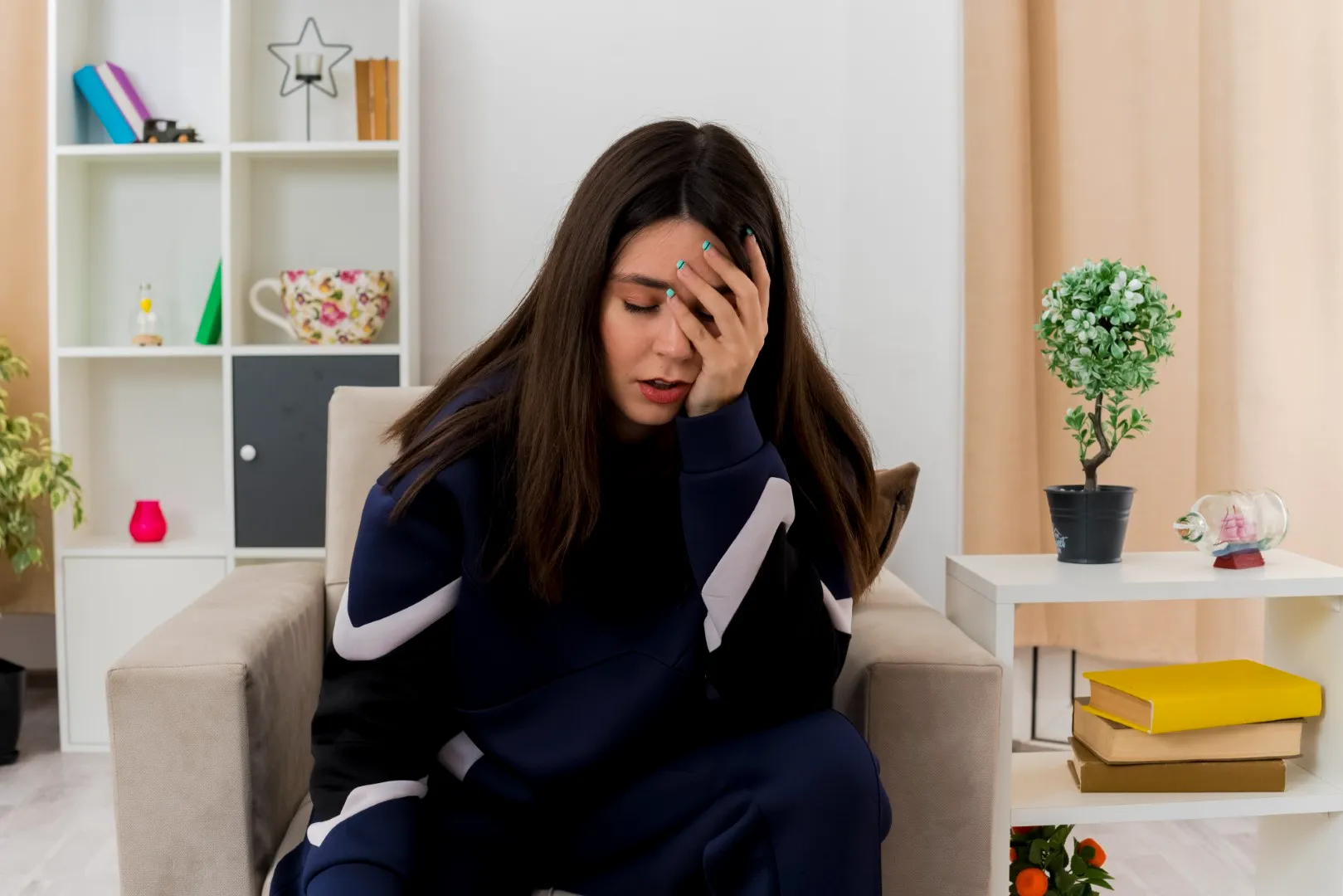
Anxiety is a natural human response to stress, but when it becomes chronic or overwhelming, it can affect daily life. Anxiety disorders are one of the most common mental health conditions, affecting millions of people globally. Understanding the Key Symptoms of Anxiety and learning how to manage them is crucial for improving mental well-being. we will discuss the Common Anxiety Symptoms, their impact on health, and effective strategies to manage and reduce anxiety.
What is Anxiety?
Anxiety is a natural emotional response to stress, often involving feelings of worry, nervousness, or fear. While it's normal to feel anxious occasionally, anxiety becomes problematic when it persists and disrupts daily life, causing physical and emotional symptoms.
Key Symptoms of Anxiety
The Key Symptoms of Anxiety vary depending on the individual, but there are some common signs to look out for:
- Excessive Worrying: People with anxiety often worry excessively about daily situations or events. This worry may seem out of proportion to the actual situation, and it can be difficult to control.
- Restlessness or Feeling on Edge: A common symptom of anxiety is feeling restless or easily startled. This may be accompanied by a sense of agitation, making it difficult to relax or focus.
- Fatigue: Chronic anxiety can cause significant mental strain and physical exhaustion, affecting overall well-being. The ongoing state of heightened alertness and tension depletes energy levels, causing fatigue, even without physical exertion. This constant strain can significantly impact overall well-being, leaving individuals feeling drained and fatigued.
- Sleep Disturbances: Anxiety often disrupts sleep patterns. People may have trouble falling asleep, staying asleep, or experience restless, non-restorative sleep due to racing thoughts or physical tension.
- Avoidance Behaviors: People with anxiety may start avoiding places or situations that make them feel scared or worried. This can include skipping social events, avoiding public speaking, or even not going to work. Avoiding these things can make anxiety worse and lead to feeling more isolated.
Identifying Common Anxiety Symptoms and Understanding Their Significant Impact on Everyday Life
Recognizing common anxiety symptoms and understanding how they affect daily life is essential for managing the condition. These symptoms can interfere with work, relationships, and overall well-being, making it important to address them early for better mental and physical health.
How to Manage Anxiety
Managing anxiety involves simple steps like breathing exercises, seeking therapy, staying active, practicing mindfulness, and talking to supportive friends or family. These strategies help reduce stress, improve focus, and promote emotional well-being.
- Practice Relaxation Techniques: Relaxation methods like deep breathing, meditation, and progressive muscle relaxation can effectively reduce anxiety. These practices trigger the body's natural relaxation response, helping to ease physical symptoms like tension and stress, promoting a sense of calm and well-being.
- Regular Physical Activity: It releases endorphins, which improve mood naturally. Regular activities like walking, jogging, or yoga can help calm your mind and boost overall health and well-being.
- Cognitive Behavioral Therapy (CBT): CBT (Cognitive Behavioral Therapy) is a type of therapy that helps people identify and change negative thoughts causing anxiety. By changing irrational thoughts to more positive and realistic ones, CBT effectively helps reduce anxiety symptoms.
- Mindfulness and Meditation: Mindfulness techniques involve staying present and focusing on the current moment without judgment. Meditation helps calm the mind and increase awareness, which can be beneficial in managing anxiety. Practices like mindfulness meditation or guided imagery can help individuals gain better control over their thoughts and emotions.
- Social Support: Talking to friends, family, or a therapist can help individuals with anxiety feel less isolated. Support networks provide emotional comfort and practical advice, and they can help people feel understood and supported during tough times.
- Medication: Sometimes, doctors may prescribe medication to help manage and reduce anxiety symptoms. Antidepressants, anti-anxiety medications, or beta-blockers may be used to reduce symptoms. It's essential to consult with a healthcare provider to determine the right course of treatment.
Why Choose Us
At Dr. Kalrav Mistry's clinic, we understand that dealing with anxiety can be overwhelming. Our approach combines professional expertise, compassionate care, and proven methods to help manage and reduce anxiety symptoms. With years of experience in treating anxiety disorders, we tailor each treatment plan to meet the individual needs of our patients. Whether it's through therapy, relaxation techniques, or lifestyle modifications, we aim to provide a comprehensive solution that empowers you to live a stress-free life.
Conclusion
Anxiety is a common yet complex condition that affects millions of people. Recognizing the Key Symptoms of Anxiety and understanding how to manage them can significantly improve your quality of life. While anxiety can feel overwhelming, there are many effective strategies for reducing symptoms and regaining control. By practicing relaxation techniques, seeking therapy, exercising regularly, and building a strong support network, individuals can manage their anxiety and lead more fulfilling lives. If you're struggling with anxiety, don't hesitate to seek help.
For more information on managing anxiety or to book an appointment, contact us today! Call us at +91 9624911162 or to schedule a consultation. Start your journey to a calmer, healthier mind today for better peace and well-being!
